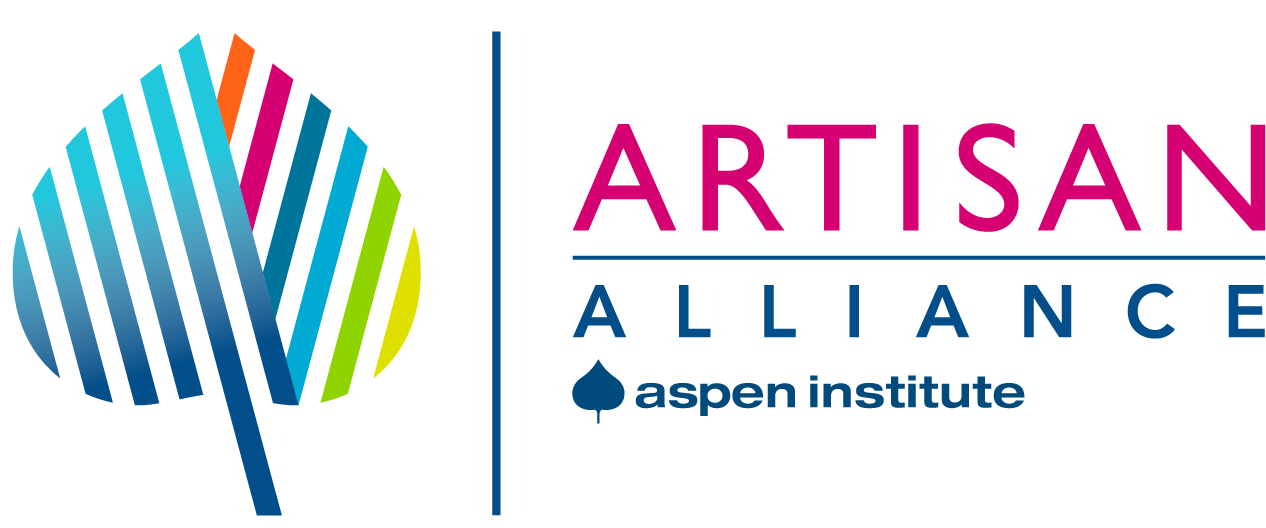The Alliance for Artisan Enterprise was invited by the U.S. Department of Commerce to speak at the Asia-Pacific Economic Cooperation (APEC) Workshop on Integrating SMEs into Global Supply Chains in Taichung, Chinese Taipei. The artisan sector is an important driver of economic growth, especially in the APEC region, we were delighted to be part of the dialogue on how to integrate small and medium artisan enterprises into global value chains.
Day 1
Follow Peggy and Henna as they travel from Taichung to Taipei, stopping in Sanyi and Yingge to learn about woodcarvings and ceramics.
On March 24th, Alliance Director, Peggy Clark spoke on the unique trade barriers small and medium artisan enterprises face, and how, as a group we are helping each other to overcome those barriers. Later that day, our research fellow, Henna Wang shared her recent research on the involvement of women in the global economy and more specifically on women in the handicrafts sector. For women, while there are apparent challenges to access economic opportunities, there is also great potential if we consider women both as consumers and suppliers. According to the International Finance Corporation, women constitute approximately $28 trillion in global consumer spending in 2014. Forward thinking businesses can maintain a competitive edge by sourcing from women-owned SMEs and offering products that are better tailored to their clients.
Both Peggy and Henna’s presentations sparked relevant conversations with APEC delegates and other workshop attendees from the Philippines, Indonesia, Thailand, and the US. We invited them to continue the conversation at our breakfast meeting the next morning.
Day 2
Bright and early on Tuesday, March 25th, we co-hosted a breakfast roundtable with Lynn Costa and Daniel Miller from the U.S. Department of Commerce to discuss ways to unlock the potential of the cultural and creative industries in the APEC region. With support from the Taiwanese Ministry of Economic Affairs, we invited three speakers to share their experience in advancing the artisan sector in Taiwan. The discussion was enriched by perspectives from APEC SME delegates from Indonesia, Malaysia, Mexico, the Philippines, Taiwan, Thailand, and the U.S.
Mr. Keng-Hsiu Hsu talks about the multifaceted approach of NTCRI.
The first speaker, Mr. Keng-Hsiu Hsu, Director of the National Taiwan Craft Research and Development Institute (NTCRI) introduced the network of research centers that not only strengthen research in the handicrafts sector but also collect and preserve examples of the fine craftsmanship, train next generation artisans, organize competitions to encourage creativity, and participate in international salons to promote Taiwanese craft culture.
Mr. Wen presents the Alliance with a OTOP gift
Mr. Jong-Yuan Wen, Senior Specialist of the Management Consulting Division of the Small and Medium Enterprise Administration, Ministry of Economic Affairs, R.O.C. introduced the One Town One Product program in Taiwan and showed a dynamic video.
Inspired by Japan’s One Village One Product Program, the OTOP (One Town One Product) program in Taiwan is a community centered and demand driven regional economic development approach. Since 1989, the Small and Medium Enterprise Administration has been pushing forward the OTOP program to support the growth of local cultural industries. Learn more about the OTOP program in Taiwan.
Other countries have also established their own OTOP program, such as Thailand, Philippines, Malaysia, Vietnam, Cambodia, Pakistan, India, Bangladesh, and Indonesia, etc. According to Dr. Wimonkan Kosumas, as one of the first Asian countries to adopt the Japanese model, Thailand has also created its own One Tambon One Product program, now reaching 8,000 villages.
Ms. Hu introducing the "creative life industry"
Ms. Yo-Xin (Vivian) Hu, Manager at Corporate Synergy Development Center (CSD), explained the “Creative Life Industry,” a framework that fosters collaboration between the agricultural, manufacturing, and service industries to create an experience economy. The Taipei-based Corporate Synergy Development Center, which operates One Town One Product programs in communities around Taiwan, was commissioned by the Ministry of Foreign Affairs to carry out the program by providing advice on product, promotion, service and space or PS2.
We are thankful for the generous support of the APEC Secretariat, the U.S. Department of Commerce and the Ministry of Economic Affairs, R.O.C. for the opportunity to participate in the SME working group meetings in Chinese Taipei. We have come away with new ideas and new friends and are looking forward to building on the momentum that the group created to plan for future collaborations with APEC and its member economies.








































